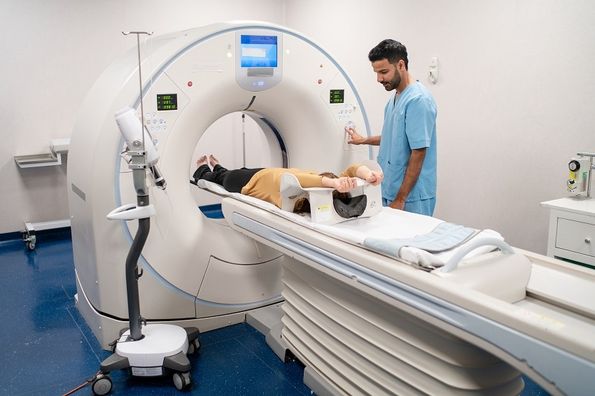When most people think of physical therapy, they may think of the usual conditions, such as rehabilitation after surgery, a sports injury or back pain. Although that’s true, physical therapists cover many more conditions.
Even if your pain isn’t one of the more common symptoms, it doesn’t mean your condition can’t be treated with physical therapy. If you’ve been experiencing joint pain, muscle pain or a decrease in physical function, talk to your Duly Health and Care provider. They may refer you to a physical therapist. Duly offers physical and occupational therapy in many specialty areas to ensure that the therapy you receive is individualized to your specific needs and condition.
Your provider will be able to refer you to a physical therapist who matches to your needs. In addition to a sports injury or rehabilitation after surgery, here are 4 things you may not have known that physical therapy can treat.
1. Migraines
A migraine is a recurring headache that can range from moderate to severe. It has been described as a pulsing or throbbing feeling that often includes nausea and weakness. Although there’s no cure, if you’ve been experiencing migraines, a physical therapist might recommend treatment to help you manage the symptoms.
A 2020 study lists two ways that physical therapy may bring relief to migraine sufferers:
- Addressing weaknesses or damage to bones, as well as muscles and other soft tissue
- Addressing both posture and inner-ear-related balance issues
During a physical therapy session, you may spend time stretching, which can loosen your muscles and release any physical tension. Stress causes your muscles to tense up. Stretching can sometimes help manage migraines because stress is a trigger for nearly 70% of people who have migraines.
After a thorough evaluation, your physical therapist and referring physician will work together to create a treatment plan that’s right for you.
If you’re experiencing an injury or pain, a physical therapy treatment plan may be what you need. Talk to your provider about your symptoms. They may have you schedule an appointment with a Duly physical therapist.
2. Dizziness/Vertigo
Physical therapy may be helpful if you experience dizziness and vertigo. Vertigo makes you feel like everything is spinning even when you’re standing still. Your physical therapist will first want to learn what triggers your vertigo. They may ask questions such as:
- When does the dizziness begin and when does it stop?
- Do you experience ringing, hearing loss, or a feeling of fullness in your ears?
- Are you nauseous when you experience dizziness?
After their evaluation, therapy may include exercises to strengthen your balance and to better manage or tolerate visually stimulating environments. They may also be able to improve your dizziness in just one visit depending on the severity of your condition. Your physical therapist will find a treatment to help you manage vertigo and get you moving again.
3. Pelvic Pain
If you’re dealing with Pelvic Pain, a physical therapist may be able to help. Many people tend to ignore or don’t want to discuss pain in their lower abdomen or pelvis. Pelvic pain can be very disruptive to daily activities and affects up to 20% of men and women in the United States.
A physical therapist can help get to the root cause of your pelvic pain and provide treatment that will restore strength and function to the muscles and joints in the pelvic region. They will also provide education on how to ensure long-term relief of pelvic pain.
4. Chronic Fatigue
Chronic fatigue syndrome (CFS) is a condition where a person experiences extreme fatigue for more than 6 months. In addition to fatigue, other symptoms of CFS sometimes include general body pains, headaches, brain fog, difficulty sleeping, and muscle weakness. If you’ve been diagnosed with CFS, treatment and physical therapy can help you find relief for any discomfort you might be feeling. It’ll also improve your quality of life.
A physical therapist can help you learn to balance periods of activity with periods of rest, increase your short-term endurance and strength, and ease your pain and improve your overall movement.
What Our Physical Therapists Do
Our physical therapists work to restore your function and improve your mobility. They offer a diverse range of therapeutic treatments and specialty programs to meet your individual needs.
Duly offers sub-specialties like:
- Neurologic therapy (for conditions like stroke and Parkinson’s Disease)
- Hand therapy (for fractures, arthritis, and overuse injuries related to the hand and wrist )
- Pelvic Health therapy (for men and women with pelvic muscle weakness, organ prolapse, or incontinence)
- Lymphedema treatment (to help manage the discomfort and swelling caused by lymphedema)
- Cancer rehabilitation (to help you cope with the physical side effects of cancer or cancer treatments)
- Vestibular Therapy (to treat dizziness, concussion, and vertigo)
Call 630−967−2000 today to schedule an appointment with a Duly Physical Therapist, so that you can partner together to determine what your goals are, and how best to achieve them.
Health Topics:







